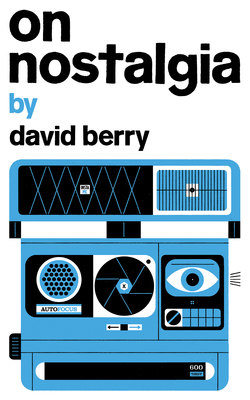On Nostalgia

Реклама. ООО «ЛитРес», ИНН: 7719571260.
Оглавление
David Berry. On Nostalgia
Отрывок из книги
david berry
COACH HOUSE BOOKS, TORONTO
.....
Even that, though, is not precisely accurate: the tastes aren’t properly mixed, except in retrospect. They are more shot and chaser than one large gulp. Nostalgia is sweet, finding its undertones of bitterness only when we become aware again that it is about our memories – snapshots of a time we can never relive, outlines of a home that has been wiped from the map. It’s this aspect that gives nostalgia both its mystery and its meaning: why on earth should we feel this way? What part of our humanity demands that we should be not just drawn toward our past but pulled so hard that it pains us? Why is this phenomenon so important that we had to rehabilitate a disorder just so that we might adequately express it?
However much we like to claim that it’s a modern condition or the sole province of the wilfully deluded, there is every evidence that nostalgia is indeed a universal part of the human condition: a setting to be toggled, not a trait that can be picked up or discarded. Eckart Frahm, professor of Assyriology at Yale, estimates that nostalgic writings started showing up about two hundred years after Sumerians developed a codified language – just enough time for sufficiently old records to accumulate that people might start feeling like their own time was missing something. And that’s only nostalgia on a societal scale: as we’ll explore in more depth in Chapter 3, art is littered with nostalgic feeling from its earliest days – it was prevalent enough to make up a whole subcategory of Greek storytelling, after all. And being aware enough of the feeling to name it has done nothing to diminish its prevalence: another batch of psychological studies found that roughly three-quarters of people feel nostalgic at least once a week. They’re the median of a population that leans heavily toward nostalgia: more than a quarter of people reported feeling nostalgic at least three to four times a week, while only 4 percent claimed it happened less than once a month.
.....